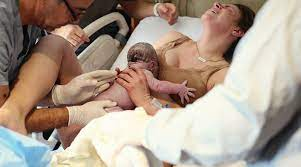Thesis of Disruptive Behavior of Kids Thesis - Misbehavior Chapter 2
THE EFFECTS OF DISRUPTIVE BEHAVIOR TO THE SCHOOL PERFORMANCE OF GRADE - 4 AND GRADE - 5 PUPILS IN CABANGLASAN ELEMENTARY SCHOOL
Review of Related Literature and Studies (Foreign Studies)
Misbehavior
Articles
for Teachers Disruptive
Student Behavior - Getting an Understanding By: Cindy Chung, 2002 - The article
is related to the study because it deals with the behavior and it is generally termed disruptive when it
disrupts the teacher's plans, upsets other class members, or in some way
disturbs the process of teaching and learning in the classroom. In other words,
the behavior is inappropriate in the context of the classroom setting is
unacceptable since it detracts the education of the other pupils.
Misbehavior and Interruptions
usually exhibited by children having disruptive behavior such as talking when
the instructor or others are speaking. Constant
questions or interruptions which interfere with the instructors’ presentation.
Dinkes, R. Cataldi,
E.F., Indicators of school crime and safety (2006). The article is related to
the present study for it focus on children exhibiting disruptive behavior and
have impaired socialization and academic struggles at school.
Ramos,
R. Ellen, Free Press, Resilient Classrooms (2005), stressed that Children with
disruptive behavior disorders tend to struggle with interpersonal relations and
might have excessive conflicts with family, friends and school staff.
A child having disrupted behavior
usually have impaired socialization among his her co-pupil. The child is often struggling to understand
and to be understood by peers. Peers too
are struggling over this pupil because of her/his misbehavior. Children having disrupted behavior are
impatience that usually can’t wait and there has always the chances to
interrupt someone near them. Such as
interrupting someone by not respecting the rights of other pupils to express their
view points and inordinate or inappropriate demands for time and attention.
Choices,
Essi Viding, Ph.D: Ana Seara-Cardoso, M. SC. Am J Psychiatry 2013; Copyright @
2013 by the American Psychiatric Association - The article .“Why Do Children With
Disruptive Behavior Disorders Keep Making Bad”
has made an important contribution to the literature for it relates that
the “specific decision-making impairments” correlated with disruptive behavior
disorders of children.
This article is related to the
present study for it relates about the effects of disruptive behavior to the
total personality of the pupils especially in their decision-making wherever
they are, thus it is clear that the effects of having that kind of behavior
will affect to their school performance because of their unwise decision making.
They often got in trouble and or can’t understand right away their lessons that
makes them left behind by their classmates or peers.
Children who
have disruptive behavior is generally a misbehaving and exhibits interrupting, behavior
in such a way that he monopolizes classroom discussions which has negative effect
to others. It is sad to note that children doing these were not conscious ofits
effect. Parents, teachers and school administrators must be equipped with
knowledge and skills on how to handle such kind of children.
American Academy of Child and
Adolescent Psychiatry, 2003.The
Academy is an organization for physicians trained to diagnose and treat mental
illnesses and emotional disturbances in children and adolescents. The article published by the academy
“ How Disruptive Behavior Be Treated” is related to the study because it points
out the behavior of some pupils who are simply too sad, too
anxious or too angry to learn. Indeed,
the three emotions are often all present and may come to the surface
unexpectedly. Thus a pupil who is
anxious or sad may suddenly become very angry. Anger may be easier to feel than sadness
or fear.

Comments